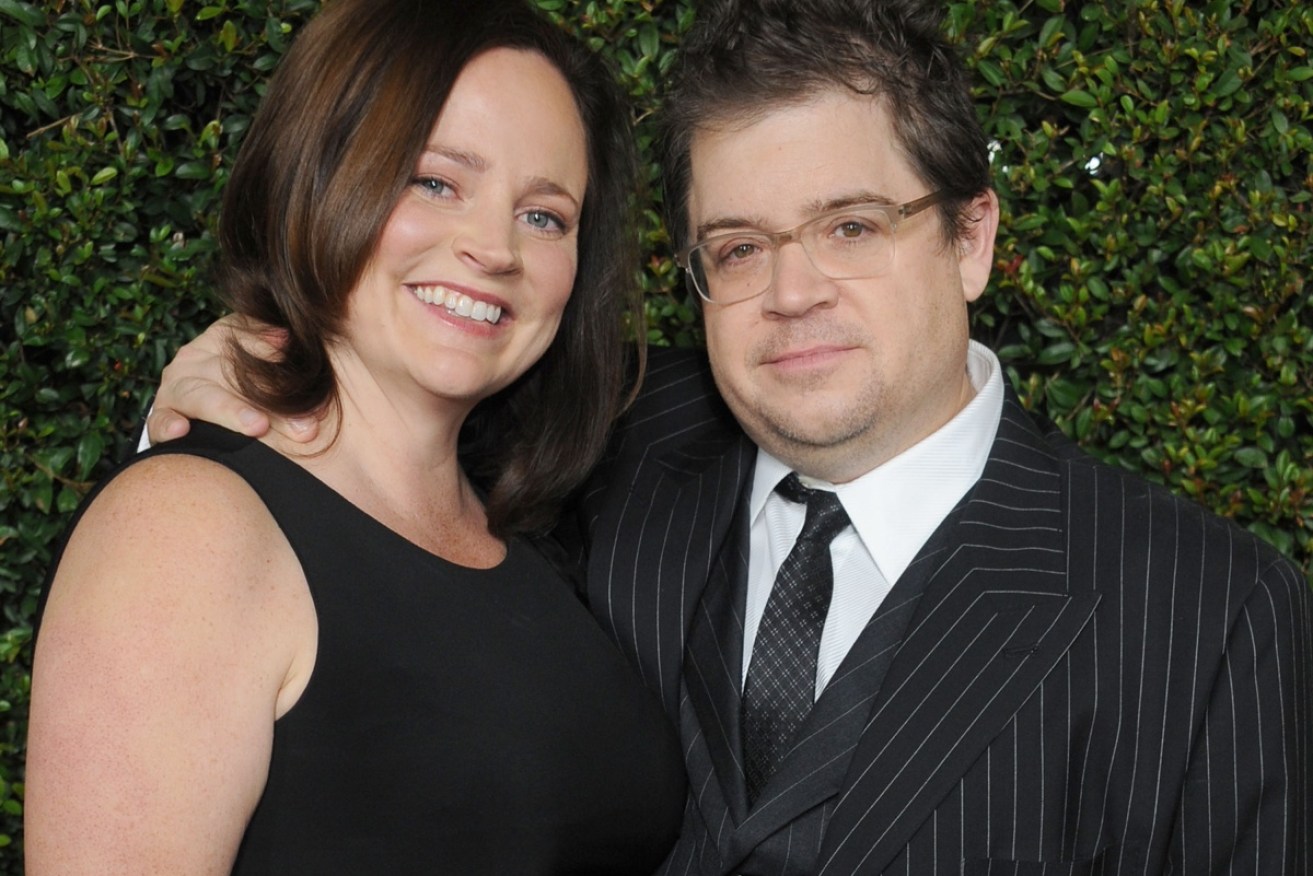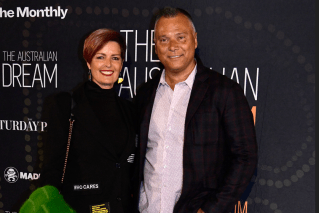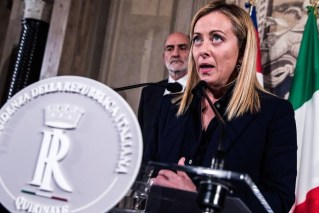Too soon? Actor slammed for marrying a year after wife’s death


American actor Patton Oswalt and his late wife, author Michelle McNamara. Photo: Getty
When a spouse dies, how soon is too soon to marry again? And whose business is it anyway?
Fifteen months after the unexpected death of his true-crime writer wife Michelle McNamara, and a subsequent very public chronicling of his crippling grief, comedian and actor Patton Oswalt announced his engagement to Natty Gran actress Meredith Salenger.
So joyful and giddy were they that Salenger posted a Photoshop image of Dwayne ‘The Rock’ Johnson standing where an engagement ring ought to be. The Rock, get it?
The world piled on: first the trolls and online commentary, some of it supportive, some taking a flabbergasted, dismissive and nasty tone.
When Jezebel made a congratulatory announcement, one reader threw Oswalt’s grief back in his face: “I was like — WTF? Didn’t you JUST write a column about how you hadn’t taken your wedding ring off until the one-year anniversary of her death? How you were still only just coming to terms? And now, barely two months after that, engaged?’’
Oswalt, who has an eight-year-old daughter from his marriage to McNamara, said he wouldn’t respond to the “grub worms”. Celebrities began popping up in defence of the love match. And a young widow, Erica Roman, wrote an essay lacerating the “a**holes’’ who’d been a downer.
“It makes my heart happy to see that his heart has … healed and expanded to the place where he can now love another,’’ she wrote.
In 2010, Mail Online published the story of one Michelle Heidstra who married her dead husband’s best friend four weeks after the funeral. Relationship experts said it wasn’t an unusual dynamic – and most of the online commentary was sober and cautiously supportive.
So what gives? Research shows that bereaved men, especially those who were happily married, tend to move on more quickly than women – which makes sense because men are said to thrive in marriage more than women. So a return to what has worked well isn’t so shocking.
There’s also a belief that men will pair up because they rely less on a circle of friends than women. A Rutgers University study found, “the desire for post-loss romantic relationships is weakest among those who have the most emotional support from friends”.
Moving on isn’t a matter of months or years, nor is it a matter of “letting go’’ of the dead and “working through’’ a complicated process toward recovery from loss. The much-celebrated stages of grief – anger, denial and so forth – might be a neat and tidy way of parcelling our feelings, but in contemporary psychology research they don’t stack up.
Christopher Hall, Director, Australian Centre for Grief and Bereavement writes that evidence fails to support, “popular notions which construe grief as the navigation of a predictable emotional trajectory, leading from distress to ‘recovery’.
“We have also witnessed a shift away from the idea that successful grieving requires ‘letting go’ of the deceased, and a move towards a recognition of the potentially healthy role of maintaining continued bonds with the deceased.’’
What seems to be more important is making sense of your loss.








